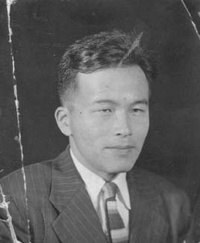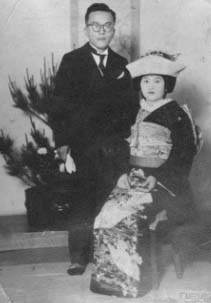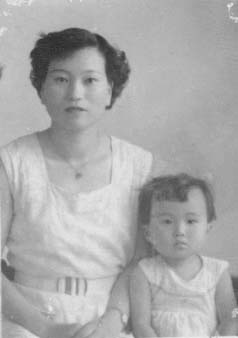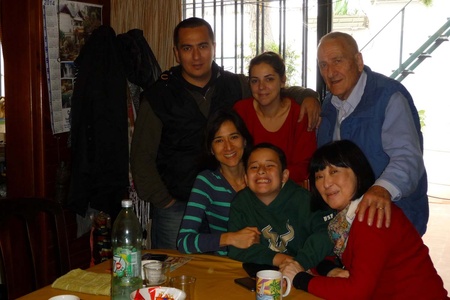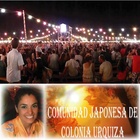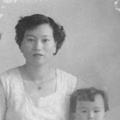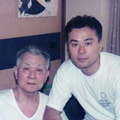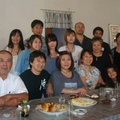History is built every day. We can learn about the history of a country through the lives of its inhabitants, so history is traversed longitudinally and transversally when we analyze the case studies. In this article, we try to visualize the dynamics of an immigrant family and recover the historical richness of those interviewed, using the tools of oral history, where the interview and the compilation of life stories are vehicles of historical knowledge. 1 Oral history opens the doors to walk through unique moments with its protagonists, stories in which they participated, which may have different visions, due to the remoteness of the event at the time of the interview. It is a puzzle and a chess board, where we discover thanks to the memory of the informants.
Following the words of James (2004: 128) 2 the product of the written story is ultimately a joint work between the interviewer and the interviewee, this “conversational narrative” is not only structured by cultural conventions, but is also an essentially social construction, permeated by the exchange between the interviewer and his subject, and nuanced by ethnographic and national community stories; Finally, the meaning of the story, in many cases, is considered as a legacy for one's own or as a testimony of historical facts of microhistory.
The story that will be developed below is one of the many stories of immigrants who have gone through historical milestones in their native country and in the country that receives them. Macrohistory encompasses microhistories, this is one of them, which involved different events of two social groups that were forging a common destiny, after the Second War in a very distant country: Argentina. We will go through family life with the help of one of the daughters of the couple who decided to change the course of their lives, achieving prosperous offspring.
* * * * *
My father Kyosaku Fujita participated, as a student at the University of Tokyo, in World War II. After graduating as an agronomist, he returned to Fukuoka and was introduced to my mother Isae Hiromatsu, the daughter of humble parents who grew rice in Yanagawa-shi. My mother said that, during the war, the enemy fighter planes came and the women alone (because the men were at war) did the work of the dairy, planting rice in the swamps. When they felt the airplane engines, they would take a hollow reed rod, submerge themselves in the muddy water, and breathe through it. Many times, he said that they would tie a bowl or chawan of rice to their heads, and crawling, getting wet and muddy among the rice plants, they would go to the neighboring house to exchange that rice for a bowl of sugar, experiencing many moments of anxiety.
She also said that when she was younger, as they were humble and had many brothers and sisters, her father was very demanding and hard, she remembered asking him for some coins to buy candy and he responded that for this you had to work hard. On the other hand, my father, from a good middle class, and my paternal grandfather, always linked to the politicians in power, highly respected and an important member of the Fukuoka Grain Exchange, had a good time. So much so, that my father, the eldest son of the family, was always a bit rebellious; Even so, he went to study at the University of Tokyo, a time when the war began and they were sent to factories to assemble weapons or bombs, or to keep track of how many were manufactured.
Also on one occasion, together with a very close friend, they took turns going up to a viewpoint to warn of the advance of enemy planes. On one occasion, when it was my father's turn and he was preparing to go up, the colleague from above yelled at him that he was staying 10 more minutes smoking a cigarette. When my father turned around and walked a few meters, he felt a series of gunshots and stampedes. As he turned, he saw his companion fall with his arms open and a mortar projectile in the middle of his chest. My father was wounded in the eye and right shoulder, but he saved his life. Another time, before the siren, they ran to a shelter with many women, children and men, waiting for the attack to pass and they heard bombs that blocked the exit. The air that remained was for a few hours. When they felt that the air was becoming stale, a drill and a hose with oxygen saved them. He woke up in a hospital bed. He didn't like to tell us much, it brought him a lot of sadness. For this reason, fireworks were not bought at home, because it reminded him of the war.
At the end of this, he returned to his paternal house, and the government of that time expropriated many of his grandfather's lands, and he said that they were hard times, with a lack of food, fuel, with families that had lost children, and relatives.
My parents were married on May 24, 1952 in Japan. From whose union I, Noriko, was born on May 25, 1953 in Itoshima-gun, Fukuoka. My father worked as an administrative employee in a coal mine for two years, where he saw colleagues die and it depressed him. Then, a Uruguayan company that hired immigrant people for Brazil and Argentina offered him to come to America. They set sail from the Port of Kobe on a Dutch ship, “Telgelber Maru”, and arrived at the port of Buenos Aires on December 9, 1955, when Perón fled on the buccaneer towards Paraguay. From there we stayed at the immigrants' hotel and then they put us on a steam train heading to Misiones, arriving first at Aristóbulo del Valle.
The provincial government commissioned my father to clear the jungle and plant and harvest tea. My little sister María Ritsuko was born there on September 8, 1956. I saw it snow in that place, and also how a naked Indian carried a bow and arrows in his hand, and tied to his waist with a vine he carried his Indian wife, appearing in the mornings on one side of the jungle and running he got lost on the other; At dusk it was the other way around. Then they moved us to Oberá for a few months and from there to Garuapé, where my other brother, Raúl, was born in the middle of the jungle on August 19, 1957. My mother was assisted by the only Paraguayan lady who lived in the jungle. And her husband, on a day of atrocious storm, ran through the jungle with machete in hand to look for the doctor, but when this professional arrived, my little brother had already been born. There, our house was mounted on wooden stilts to avoid bugs and snakes. We saw the giant trees that with their vegetation did not let the light of day pass through, I saw people die from bites. A dancing couple from Nihon came to work for a while, the funny thing was that the woman wore those beautiful kimonos and walked through the red land, shortly after they returned to Japan. My only friend was the foreman's daughter of German origin, but I don't remember her name.
When I reached school age, there was no school nearby, so my father looked for work in Buenos Aires and we moved to Lomas de Zamora. There he worked in a company as an administrator and then we moved to Burzaco, where my last little brother, Oscar, was born on April 13, 1963, and he has lived single in Japan for more than 25 years. Oscar, for 15 years, lived and worked in Fukuoka, then moved to Shizuoka where my other brothers live.
I am married to an Argentine, Orlando Raúl, of Italian, French and Greek descent. I have two children, Hernán was born on August 10, 1972, who in turn has a son, Máximo was born on January 20, 2005. My son lives in Palermo, he is an advisor and press spokesperson for a Ministry of Agriculture, he lives with his partner Cecilia Tear. My daughter Cintia Natalia was born on May 13, 1976, she lives in the United States, Tampa, and works in the Judicial Branch of that country. He speaks perfect English, some Japanese, Portuguese and a little bit of German. He is a Legal Assistant to 5 lawyers from the state defense office.
I am a lawyer, a specialist in Family and Civil Law, a Children's Lawyer, a teacher at the Professional Initiation Workshops at the National University of Lomas de Zamora, a teacher in the postgraduate specialization of Children's Lawyers, and I give talks-debates at different schools. of lawyers, auctioneers, etc. I live in the city of Monte Grande. Finally, my father died after an assault in the city of Monte Grande on July 7, 1998. Then my mother traveled to visit her sisters and brothers and children and died in Shizuoka of cardiac arrest on September 11, 2011.
Grades:
1. Portelli, Alessandro (1991) “What makes oral history different” in Oral History by Dora Schwarzstein, Buenos Aires. CEAL Publishing.
2. James. Daniel (2004): Doña María. LIFE HISTORY, MEMORY and POLITICAL IDENTITY. Buenos Aires, Cuadernos Argentinos Manantial.
© 2015 Irene Isabel Cafiero


